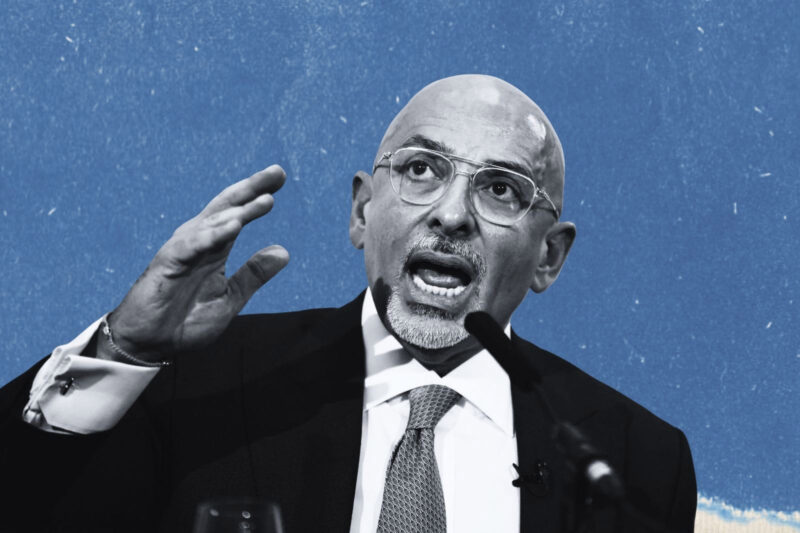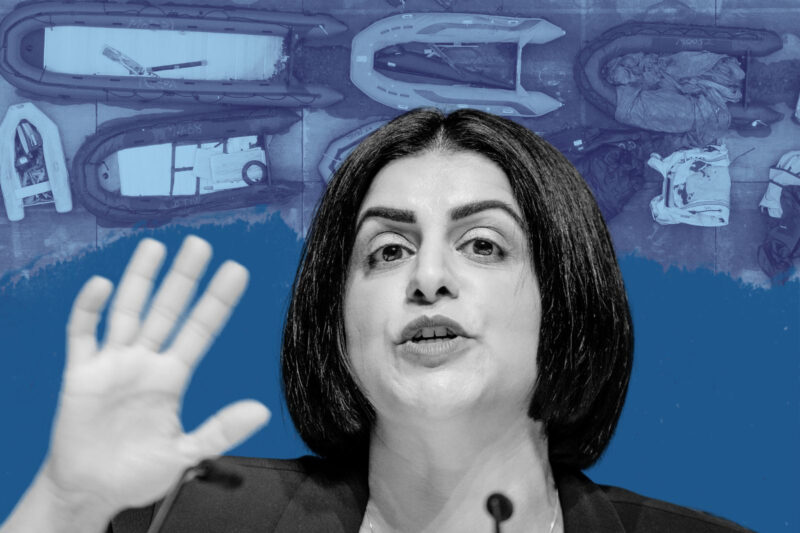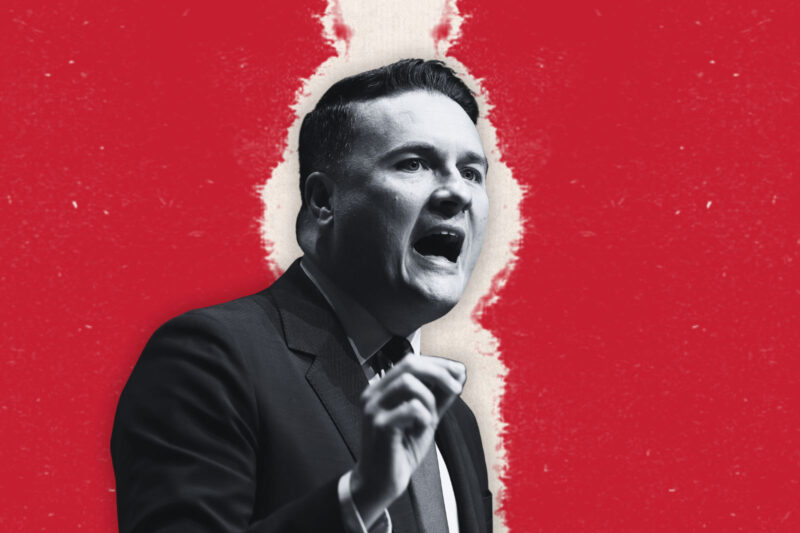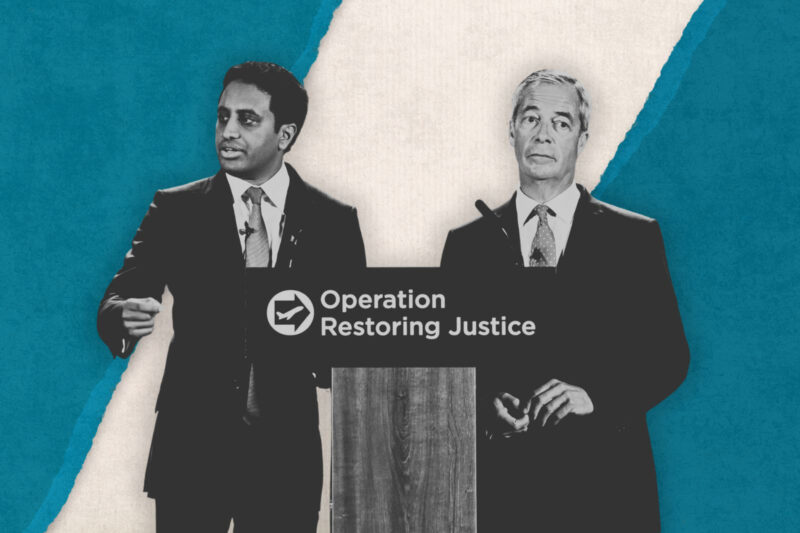Musk is a headache for Labour, but the Tories are worried too
Keir Starmer and Nigel Farage have both fallen foul of the world’s richest man. What’s his game — and will Kemi Badenoch fare better?
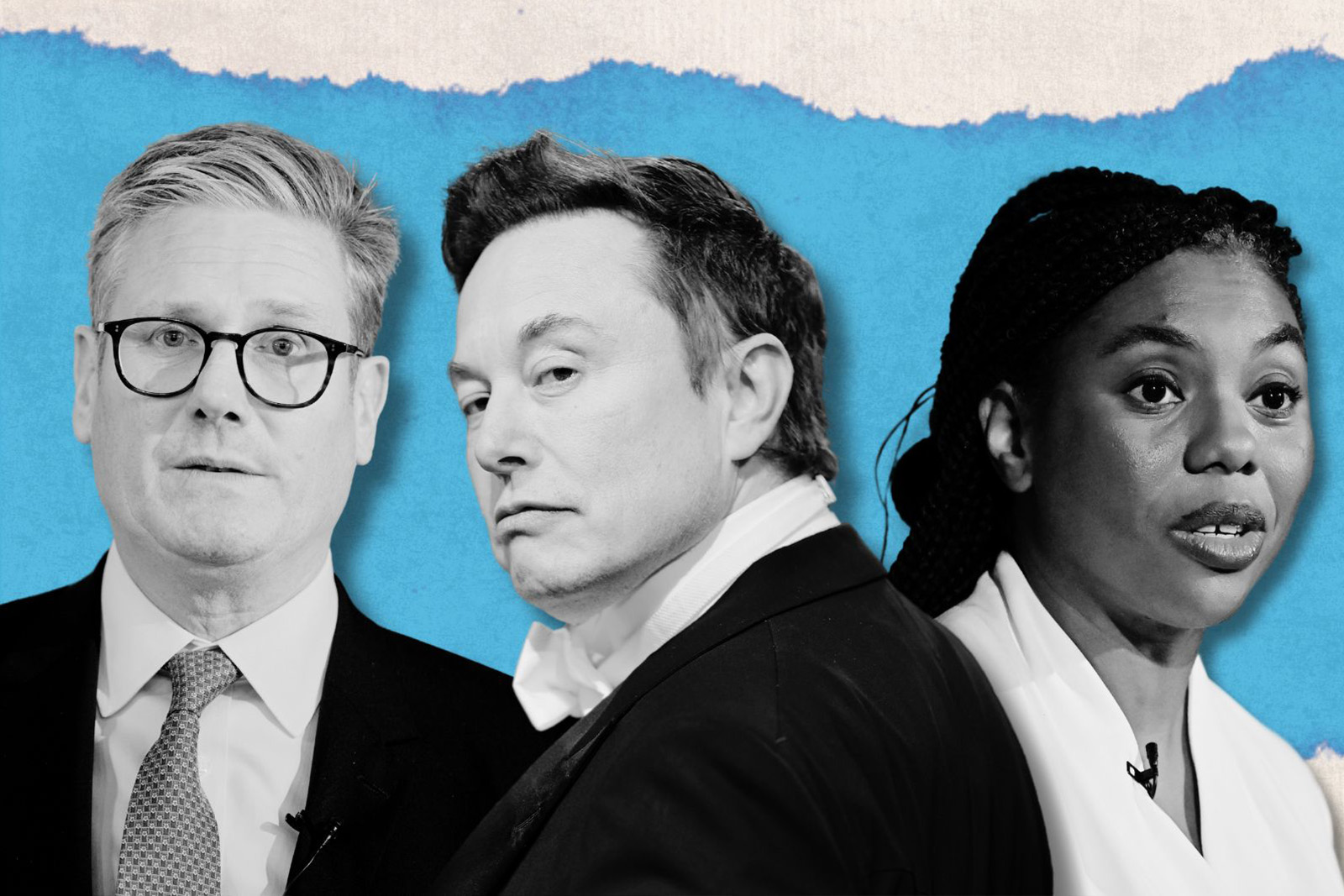
It’s a brand new year, but Elon Musk is up to his old tricks, stirring the pot and diving headfirst into political controversy. And once again, he has set his sights on the UK, taking aim at Keir Starmer.
Musk, the world’s richest man and owner of X, has launched a barrage of attacks accusing Starmer of not cracking down hard enough on grooming gangs during his time as Britain’s top prosecutor between 2008 and 2013 — a period when multiple such scandals across England were coming to light. Starmer has defended his record.
Musk’s appetite for controversy is nothing new. What is surprising, though, is the level of meddling from someone who’s about to join the incoming Trump administration. It’s not every day you see a soon-to-be senior US government official inserting themselves into the domestic politics of an ally.
For Starmer, it has been a nightmare. At first, he took a page from German chancellor Olaf Scholz’s playbook: “Don’t feed the troll.” Scholz has faced his own share of Musk’s social media fury and recently said the best approach was simply to ignore him. But Musk is relentless. With more than 200 million followers and control of one of the world’s largest social platforms, he can dominate the narrative. And dominate he has — Britain’s politicians and media are all talking about him and, by extension, about the issue of grooming gangs. One senior cabinet minister this week vented their frustration to me, saying: “He’s a US billionaire. He’s not a British citizen. Why are we even giving him air time?”
Yet Musk’s influence has forced Starmer to respond. Without naming him, Starmer denounced those spreading “lies and misinformation”, accusing them of being more interested in self-promotion than supporting victims. Meanwhile, Musk’s antics may have had an effect: the government has promised action on a series of key demands from professor Alexis Jay’s 2022 child sexual abuse report. Safeguarding minister Jess Phillips has insisted to ITV News that these changes did not happen because of Musk’s intervention, but the timing is hard to ignore.
So why does Musk have such a bone to pick with Starmer? It seems to go back to last summer’s riots in the UK. After far-right clashes were fuelled by misinformation spreading on X, Starmer’s government urged swift prosecutions for those fanning the flames online. Musk, a self-proclaimed free-speech absolutist, accused the UK of practising “two-tier policing”, a conspiracy theory claiming bias against white demonstrators and softer policing of left-wing protesters and ethnic minorities. Things spiralled further when Musk ominously posted that “civil war was inevitable” in the UK.
The government returned fire: Musk wasn’t invited to Britain’s high-profile investment summit, which included the CEOs of Google, Goldman Sachs and pharmaceuticals company GSK. Insiders told me it was a deliberate snub tied to his behaviour online. Musk’s response? “No one should go to the UK when they’re releasing convicted pedophiles [sic] to jail people for social media posts.” It is a far cry from Rishi Sunak’s hour-long Q&A with the tech billionaire at the government’s last AI summit in November 2023.
But Starmer isn’t Musk’s only British political target. Nigel Farage, recently considered an ally of Musk, has faced his wrath over their differing views on far-right activist Tommy Robinson, real name Stephen Yaxley-Lennon. Liberal Democrat leader Ed Davey hasn’t escaped Musk’s anger either, dismissed by the billionaire as a “sniveling [sic] cretin”. Musk’s only exception seems to be Kemi Badenoch, who has avoided his criticism so far. A Tory source told me this could be “an opportunity”, noting Badenoch’s calls for a further government inquiry into the grooming scandal — a move Musk has praised. But other Tory sources tell me that privately they have urged caution, aware of how temperamental and erratic Musk can be.
So what is Musk’s endgame here? That’s the million (or perhaps billion) dollar question. No one I’ve spoken to in Westminster seems to have a clear answer. If he’s genuinely concerned about justice for victims, wild claims about “liberating the UK” or jailing Starmer aren’t the way to achieve it. Musk is too smart not to know that. One former government minister is convinced it is about influencing politics wherever he can and not just in Britain. Musk’s international meddling is raising eyebrows elsewhere too. In Germany, he has called for Scholz to resign, slammed the government’s economic policies, and endorsed the far-right Alternative for Germany (AfD) party. On Thursday, he is hosting a live chat with AfD leader Alice Weidel — a move that’s already sending shockwaves through German politics ahead of their elections. He has also made interventions about politics in France, Italy and Brazil; I suspect it will not be long before other nations are added to the list.
Musk’s defenders argue he’s simply exercising his right to free speech. But critics worry that his massive platform and his ability to amplify polarising narratives poses a real risk to political stability. What happens when someone with this much influence decides to stir the pot for reasons only he fully understands? And now, with Musk poised to join the Trump administration, his provocations aren’t just a sideshow: they’re potentially a diplomatic headache.
Diplomatic sources I have spoken to insist Musk’s tweets are not being viewed as reflecting the stance of the Trump administration, and won’t harm US-UK relations. Still, it’s hard to ignore how bizarre it is for a very soon-to-be member of the US administration to be picking fights with Britain’s leadership.
Ignoring Musk entirely might not be an option, but engaging with him might only add fuel to the fire. As 2025 gets under way, one thing is clear: world leaders from London to Berlin are grappling with a unique dilemma. How do you deal with, as Scholz put it, a social media troll — who happens to be the richest man on Earth?
Shehab Khan is an award-winning presenter and political correspondent for ITV News.
 Newsletter
Newsletter



